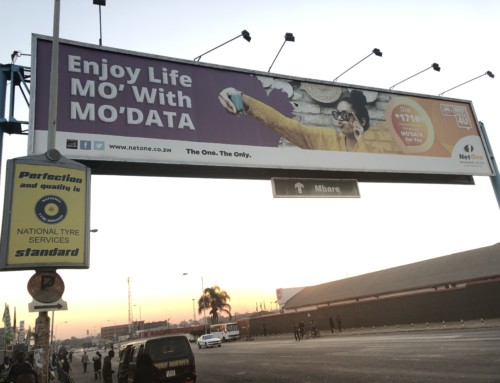Greetings my good people! I hope that I find you well. In the last post (Part B) in this series of articles we talked about 2 components of the Comprehensive Marketing Approach. That is, Building Relationships and Blended Marketing. This is one of the types of business philosophy. We saw how failing to build relationships contributed to Air Zimbabwe’s demise and how Premier Auto was probably losing clients owing to the fact that they are not practicing Blended Marketing, a good business philosophy. So much about them I think we have picked on them enough for now. We move on to the last two types of business philosophy, and companies in this series. The two types of business philosophy are In-House Marketing and the Community Marketing Approach. Let us get right to it!
In-House Marketing
In-House Marketing is a business philosophy whereby everyone in the organisation is ‘programmed’ to think in terms of the customer in everything that they do. At ZB the customer care department thinks in terms of the customer (to some extent) while the other departments do the exact opposite, which is leaving a sour taste in my mouth
There is this business philosophy among a lot of Zimbabwean firms that marketing is only the task of the Marketing Department. You can see the symptoms of this when you come into contact with some of the firms. Everything might be all good when you talk to the customer care agent or the sales guy but things go haywire when you come into contact with the other departments which seem to have a different type of business philosophy altogether. It is bad that a lot of the times the examples that I give in my articles are negative. Believe me I am not biased towards being negative but when I try to think of positive examples I cannot seem to come up with any (maybe you can assist me by pointing out some positive examples to me). I recently started banking with ZB as I sell electricity tokens from time to time. When I talked to the customer care guy at the Graniteside branch things went pretty well and I thought to myself, what a wonderful bank. The branding makes the bank seem like an environmental protection agency that is fighting to prevent the extinction of certain endangered species of trees so I had not given it a chance before. Below is a brief rundown of how things have gone so far with the bank:
Interaction #1: The Customer Service guy at Graniteside is OK I cannot complain. By Zimbabwean standards he is doing well. He knows that the customer is king, he has a good business philosophy. He gives you most of the information that you require. I would rate him at about 60%
Interaction #2: I then went to the bank teller to make a cash deposit so as to get my little business rolling, I was so excited! At the counter though there was no hie, no introductions, no smiles, and no bye. She put my cash in the bank and I was on my way. I did not complain because in Zimbabwe it is the normal business philosophy and bank tellers are usually employed under the finance department which has its own business philosophy so I expect such. I would rate her at 40%, for putting my money in the bank.
Interaction #3: Now the electricity vending system is always down. According to TechZim the vendor for this system, E-Solutions was appointed after Powertel violated tender procedures so it should come as no surprise that the system is always on its knees. This is another example of a firm failing to implement the Relationship Building business philosophy as described in Part B of this article. At ZB attending to queries regarding this system is probably the duty of the IT Department. When the system goes down you get no notification from the bank so every time you conduct a transaction you do so in fear because if the transaction fails that is a dent in your reputation with your customers (you also lose customers as some are not that forgiving hey). It also means extra costs for you as you will have to return the funds that will have been sent to you by your customers while covering their transaction charges and your charges as well. When you call ZB’s support department on (O4) 703 706 you get answered by certain individuals who sound like they do not want to talk to you. It seems like they also have their own business philosophy within the company. Rating – 10% (for being in the office)
Interaction #4: I applied for internet banking so that I could check out the movements in my bank account from behind the safety of my laptop. A month down the line I had not received confirmation that the registration had been completed so I went to the bank. The agent there told me that the registration had not yet been completed. She was jolly and all but she did not apologise for the incident. She told me that I would receive an email or an SMS confirming that my internet banking facility was ready for me. Another month went by and I went back to the bank (this was last week). The IT person was as jolly as ever and she sounded rather shocked that I had not received my PIN yet. I finally got my internet banking PIN number after 2 months. Rating – minus 40% (I am not sure if those in the realm of mathematics allow this but I will do it anyway).
When you are practicing In-House Marketing everyone in the company has to ‘Think Customer’. Whether it’s the Technical, Accounts, Finance or whatever department all that you do should be done with the customer in mind. This is because the only way that you can satisfy the customer totally is if you make them a priority. As you can see in the example above only the front office (Customer Service) was interested in the customer somewhat. The IT department and the Finance department were not really interested in such matters.
I decided to see if this In-House marketing problem only resided with ZB or if this was an economy wide cancer. To aid me in this endeavour I visited CV People Africa’s website. These are the guys that are responsible for a lot of recruitment in this country, especially where blue chip companies are concerned. The task was simple, I checked the job descriptions of 5 ‘non-Marketing’ job posts to see if they had any trace of customer orientation in them.
I went through some jobs on CV People Africa’s website trying to establish whether or not the customer was a priority. The job descriptions would give me the answer that I was looking for
The jobs that I looked at are in the links below:
- Manager – Accounting and Reporting|Freight|Customs Clearing – Harare, Zimbabwe > https://www.cvpeopleafrica.com/vacancy/view/accountancy-finance/15416
- Pharmacist/Branch Manager – Gweru > https://www.cvpeopleafrica.com/vacancy/view/biotechnology-chemical-pharmaceutical/15287
- Technical Supervisor – Solar > https://www.cvpeopleafrica.com/vacancy/view/electrical-electronics-instrumentation/15307
- Loss Control Officer – Bulawayo > https://www.cvpeopleafrica.com/vacancy/view/security-defence-surveillance/15220
- Site Manager – Construction/Construction Beira or Pemba, Mozambique > https://www.cvpeopleafrica.com/vacancy/view/construction-civils-architectural-property/15369
Of all the jobs that I looked at only the Pharmacist’s job has a trace of customer orientation. Even in that case it is mostly limited to counselling customers not being heavily involved in acts of making customers happy. As you can see some of the problems that we face as customers start by the recruitment processes that are being used in these companies. When you follow the In-House Marketing Approach the job descriptions of everyone should be centered on the customer. This makes it harder to the competition to figure out how you are doing your thing.
Community Marketing
Bakers Inn is seen here, through their ‘Smoke Mobile’, playing a very active part in polluting our environment
Community Marketing occurs when you consider how your operations affect your society as a whole. If your operation has a factory you have to consider issues like pollution. If you are into advertising you have to consider the ethical implications of the work that you do and so on. This is good in that not only is it noble but it puts you on the good side of your customers and the community at large and that type of goodwill is bankable. Who would not want to do business with someone who, for example, protects the environment that they live in?
According to the Herald, Bakers Inn will commit 24 million dollars towards the installation of additional bread production lines by 2018 at its Harare Graniteside plant. That is a lot of money meaning more bread for us which is a good thing. What about the truck in that photo though? It was smoking like a chu chu train (I bet it still is). Let us see the potential effects of such on the community. According to Green Effect fuel fumes, if they are leaded and are breathed in can slow down brain development in children and potentially cause cancer in adults so when you are looking at that photo you are looking at an organisation which is not responsible for the effects of its operations on the environment. I call this irresponsible because when you can blow 24 million dollars on a production plant you can surely afford to service your trucks.
The effect of not having a good Community Marketing approach is that you lose the trust of a lot of people. The way that truck is smoking its going to smoke the bread inside too. OK I’m just playing. I love Bakers Inn but if they have trucks like this I am going to consider other options because I do not want to fuel their destruction of our environment. If they behave like this in the open then what happens in their factories, behind closed doors, where they make our bread? We spoke about the symptoms of bad business practices in the article ‘The Pfuko Incident – Does Dairiboard Zimbabwe Have A Good Public Relations Strategy?’ Right now Bakers Inn is showing symptoms. My baby sister was riding with me when I took this picture, she is 7 years old and believe me the truck left an impression on her. Will this affect her decision making when she is buying bread for her family 20 years from now? Only time will tell. Bad business practices in the community will lose you business. That Bakers Inn truck is an anti-Bakers Inn campaign in motion.
So, this is the Comprehensive Marketing Approach guys. With this approach you will cover so many angles in your business ranging from building strong marketing networks with your business partners and customers using the Relationship Building approach to ensuring that all of your marketing activities are synchronised using the Blended Marketing approach. This approach pretty much covers everything does it not? It forces the competition to fight you on so many fronts that it becomes difficult. Are you practicing Comprehensive Marketing? Is there anything that you think should be added or subtracted from this approach? Let us know your thoughts in the comments section below.
Thanks
Ruvimbo








Hi Ruvimbo,
Your findings are very enlightening. I like the ‘no hie, no intro, no bye’ teller. It shows that there is quite some ground to cover. Being the marketing executive I am, am happy my job still exists. Imagine if, based on your findings one can then say to Z.B , I’d like to run a short service excellence training with your tellers. It’d be such an awesome joy for both ends.
Still I ask myself. How many marketing people do we have at our disposal, trained and still training. Quite a lot, even inhouse for Z.B’s case.
The challenge could be with the ‘internal marketing’ aspect you mentioned. My boss at one consultancy firm I once worked for asked me, what is internal marketing. I put it simple. I said to him ‘buy lunch’ on the company’s account for all our stuff. They will be so happy to serve all our clients on a ‘full tummy’. We did, and we all were happier to deliver. Even myself. That’s another way I viewed it.
I should like to see one of your ‘good examples’. Am sure there’s one.
S.Z
Hi Simba
Thank you very much for the compliment I appreciate it. The way you approached the issue with your boss was superb. I am sure that your organisation gained quite a lot from that. If you compare the cost of providing lunch versus the extra value that the company probably gained from motivated employees you would see that the company gained a lot. But how many companies do you see providing such for their employees? You hear managers in firms saying that providing free lunch and or benefits like medical insurance is too costly. What they will be overlooking is the fact that happy employees will contribute so much value to your firm that these costs will be overshadowed.
It is good to have happy employees especially in large organisations that have tall organisational structures. Those at operational level usually pick up issues that affect the company as a whole. These issues are usually not picked up by top management as they sit high up in their offices in the 20th floor. If employees are very happy they will feel like they are a part of the team and will point these issues out. If they are not happy they will not sound the alarms and the firm will end up not being as successful as it should be, or will even fail.
I remember now I have one or two good examples actually. I spoke about one in the article Things That Your Competitors Can Teach You About Brand Management. I mentioned the Beitbridge Express Hotel as one that provides good service. However I will continue to look for more good examples.
R.M
Thanks Ruvimbo for the rich series. What a loaded finale!
Oh, sorry about the delay in my response. My year end is quite hectic. Benefits our customer-friendly marketing.
As to what to add to what you have given us…a tough call.
But here is an interesting thought that crossed my mind as I stood back during the toil with my guys on the 2nd storey of a building we are doing.
1st I will repeat what I said to one of the assistants on site, ‘As long as the bricklayers are not laying any bricks, we are not making any progress. We are not making money. So please keep those guys happy and going.’
I was breaking down to him the philosophy of each person in any organisation being the customer/client of anyone else in that organisation and vice versa.
Community-wide angle: My industry is notorious for environmental degradation and all forms of pollution (including noise. Loads of it!). When we make an effort to keep our sites and their environs clear of rubble (including the ubiquitous empty cement bags) we are treating the communities where we operate in as our valued customers. We make the community remember us next time they see our contractor’s board elsewhere. They may remember to mention us to some prospective clients. This therefore gives us a competitive advantage.
Rounding off, I wish you and your blog community members a great festive season. I look forward to your next (year?) posts.
You are welcome! I am glad that you liked it.
That is OK the posts are there for you to read at times that are convenient for you. Reading articles is like eating food, food tastes better when you are very hungry.
You are on the right track in terms of keeping your workers happy and in the construction industry this is critical as you are building structures that are not only valuable but are not very easy to modify once they are complete. Another reason is also that construction workers have been found to generally be the happiest employees across all industries so it is best to keep them happy so that you retain your employees. Also the barriers of entry or exit are relatively low for most of the jobs making it more important to keep them happy. It is said that a sign to look out for to see how happy they are is if they are whistling or singing etc. on the job. The more they do that, the happier they are. Construction workers are generally made happier by using the following tactics:
1) The availability of work/job security – Construction workers who know that there is more work waiting for them after the project that they have completed are generally happier. So if you know that there is a project coming up let them know, it keeps their spirits high
2) Construction workers usually associate the scale of the task at hand with remuneration. This is an area to consider. After all, who doesn’t want a little more dough on their paycheck?
3) In construction managers are generally expected to be more supportive as they have to be around the site often. So be there to encourage them, maybe lend them a hand from time to time. Make sure that you are a leader, and not a boss. There is a difference there
4) Construction workers are very sensitive about the tools that they use. So always be on the lookout to ensure that they have the tools to succeed as a lack of proper tools makes the work harder.
5) Opportunities for personal growth. This is very important. For example the general hand should know that one day he can become a foreman, this will keep him motivated and going. In the case that you do not have the capacity to provide this assurance for them let them know that they can count on having your recommendation should they need it for use, elsewhere. This will ensure that they give you the best that they can offer when they are with you.
6) In line with the above point always ask for your employees thoughts on how to go about certain issues. You will be surprised on what the man on the ground has to offer in terms of ideas. It will also make them feel better about them selves increasing their self esteem.
7) Always ensure that they have good relationships among themselves. You cannot force colleagues to be friends but you can provide an environment which fosters friendships. Maybe a small braai or drinks after a project has been completed could work. It has been established that productivity increases when colleagues are friends.
The way you are approaching the community is very good for you never know who is watching. One way you can also gain mileage would be to put up a sign apologising for the noise etc. and letting the community know that you will try to get out of the area as quick as you can. A little humour goes a long way at times. You can also put your mobile number below that apology and invite people to contact you should the noise etc. become too much. That way you will gain even more empathy in the community and you will get to talk to more people in the area, who could become your clients or refer you to the next person.
Thank you for the good wishes I am sure that we will all have a good holiday. I will keep the posts rolling in during the holiday as certain rules stipulate that I should do that, they will be there waiting for you all next year.